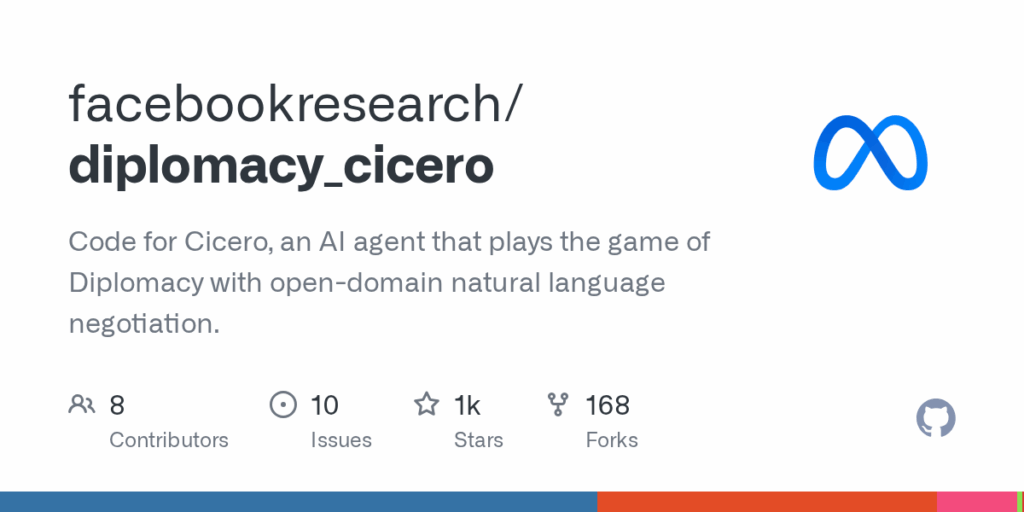diplomacy_cicero
Basic Information
This repository contains the research code, training scripts, checkpoints, and configuration used to build and evaluate Cicero and Diplodocus, two agents for the board game Diplomacy described in peer-reviewed papers. It includes language modeling and generation code integrated with the ParlAI framework, dialogue-free strategy model code, reinforcement learning self-play infrastructure, and example configs and agent specifications. The repo is intended to let researchers and developers reproduce experiments, run pretrained agents in self-play or in matches against baseline agents, and re-train or fine-tune models given sufficient compute. It also includes data and visualizations for consented experiment games and a separately licensed subdirectory with utilities for rendering and online connection to web play platforms.








